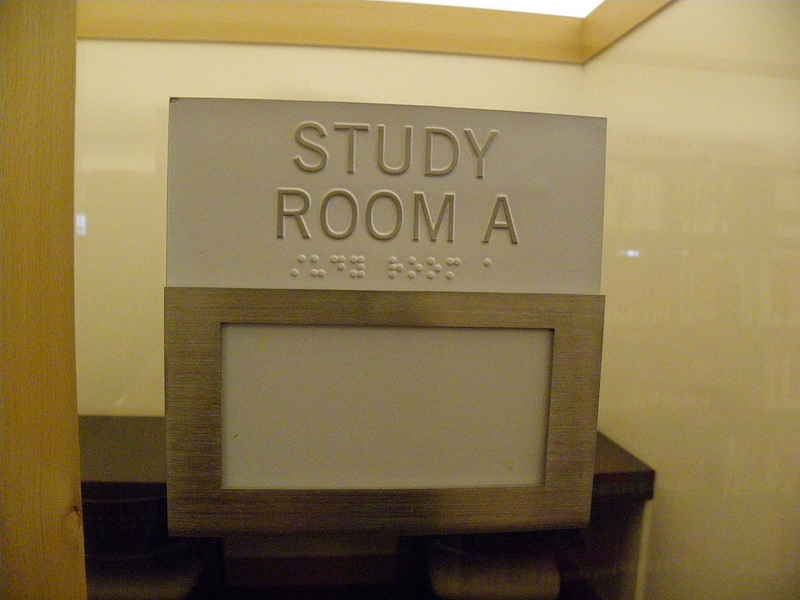
We are all guilty of it. We know it is wrong, but everyone does it. That is how we all justify it. It might be one of the most widespread issues on campus.
What is this “it”?
It is leaving backpacks, books, jackets, and more in study spaces to reserve them.
Despite the signs posted on every study room space, every student has had a similar experience: walking through KirnerJohnson looking for a space to work, because, of course, it is always nearly packed, and being excited to find a dark study room or classroom only to find a pile of work spread out across the table.
Now what? What are the options? Close the door and keep looking for a space to work or sit down and start working. I have never heard a story of someone working in a space where they had seen someone’s stuff, and I have also never heard of someone whose room was taken while they were out. I think it is pretty safe to assume that almost everyone just keeps moving.
While this does demonstrate the widespread trust between students on campus, I think it also shows a competitive and selfish side of the student body. Why should the students that get to a study space first be able to hold it for the remainder of the day?
Realistically, anyone working will need to take breaks and leave the room. Everyone needs to go to the bathroom, fill up a water bottle, grab some coffee from Opus or take a lap to get some fresh air. All of these are legitimate reasons to leave items in a room, because the student is returning shortly.
There have been many times, however, that I have noticed empty rooms with bags in them for much longer than an understandable thirty minute period of time. I have seen the group rooms on the first floor of Kirner-Johnson empty with bags reserving the space for two to three hours while I sat working in the atrium.
The real issue is that using bags, books, or jackets to reserve a place is part of student culture and is tacit knowledge that every student learns.
While working on this article I was intrigued as to what other people thought about the issue. When asked about people reserving study spaces Ben Katz ’20 said, “I think it’s a savage move. There are winners and losers; I really enjoy when it helps me, but hate it when it doesn’t.” Class of 2020 President, Cesar Guerrero responded, “It’s the only system we can come up with.” To be completely transparent, I was disappointed with the feedback. Our conversation continued, but the topic of keeping a space while not present was not discussed much further.
The only solution I can think of is just to be honest and fair with your fellow Continentals. If you are stepping out of the room for a couple minutes, maybe to talk to a professor or take a call, then by all means continue working there. But if you are leaving for a meal or going to a meeting, then you ought to take your stuff with you. The simple rule is that once you are done working in a given space you should take your stuff with you when you leave. But now, it is a matter of respecting the rule. You can always come back later on and maybe the room will be empty, or you can find a new place to work.
I think that, one by one, students can be more thoughtful about their actions. This is particularly pertinent as everyone is going through midterms before Fall Break. While it might be easier for you to leave your stuff and come back hours later, it is an inconvenience to many other students. It cultivates an environment that makes finding a place to work nearly as rewarding as getting the work done.
At the end of the day this really just comes down to the Golden Rule: treat others as you want to be treated.
So over the next week, just think about this topic a little bit more. Notice how often you see or find an empty work space, with nothing but some books and a backpack. Try to always pack up when you are done working in a given location.
I also think that this applies to more than just study spaces. I think that this message could and should be applied to a larger goal: be more mindful of how your actions affect those around you.

























